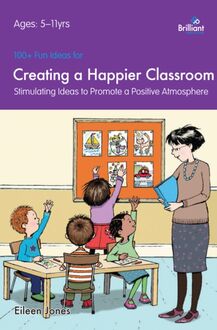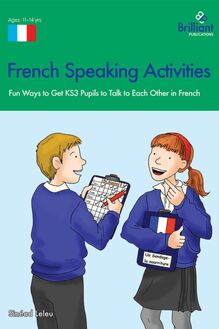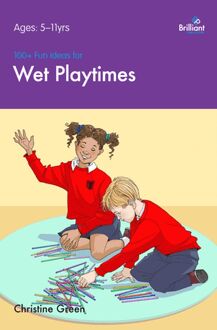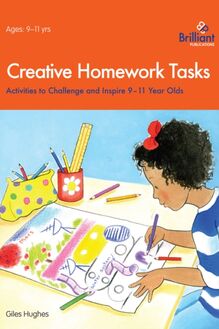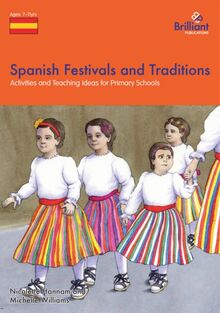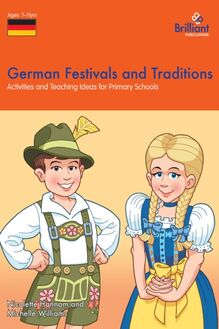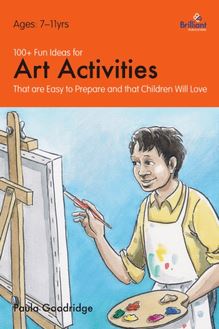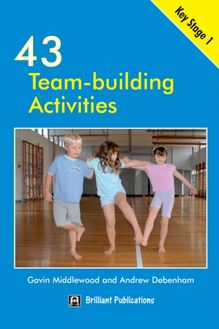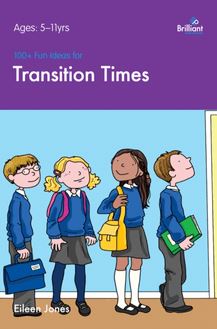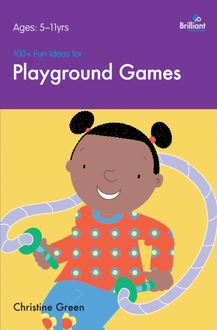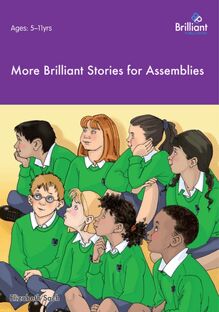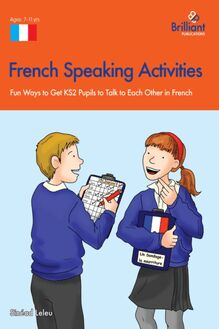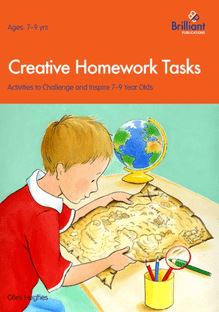Spanish Festivals and Traditions , livre ebook
139
pages
English
Ebooks
2011
Vous pourrez modifier la taille du texte de cet ouvrage
Obtenez un accès à la bibliothèque pour le consulter en ligne En savoir plus
Découvre YouScribe en t'inscrivant gratuitement
Découvre YouScribe en t'inscrivant gratuitement
139
pages
English
Ebooks
2011
Vous pourrez modifier la taille du texte de cet ouvrage
Obtenez un accès à la bibliothèque pour le consulter en ligne En savoir plus
Publié par
Date de parution
27 septembre 2011
Nombre de lectures
1
EAN13
9780857475244
Langue
English
Publié par
Date de parution
27 septembre 2011
Nombre de lectures
1
EAN13
9780857475244
Langue
English
Title Page
SPANISH FESTIVALS AND TRADITIONS
Activities and Teaching Ideas for Primary Schools
Nicolette Hannam and Michelle Williams
Publisher Information
Originally published in 2010 by
Brilliant Publications
Unit 10, Sparrow Hall Farm, Edlesborough, Dunstable, Bedfordshire ,LU6 2ES, UK
Website: www.brilliantpublications.co.uk
General information enquiries:
Tel: 01525 222292
Digital edition converted and published in 2011 by
Andrews UK Limited
www.andrewsuk.com
The name Brilliant Publications and the logo are registered trademarks.
Written by Nicolette Hannam and Michelle Williams
Illustrated by Kerry Ingham
Front cover designed by Brilliant Publications
© Text Nicolette Hannam and Michelle Williams 2009
© Design Brilliant Publications 2009
The right of Nicolette Hannam and Michelle Williams to be identified as the authors of this work has been asserted by themselves in accordance with the Copyright, Designs and Patents Act 1988.
Certain indicated sections may be printed/photocopied by individual teachers acting on behalf of the purchasing institution for classroom use only, without permission from the publisher and without declaration to the Publishers Licensing Society. The materials may not be reproduced in any other form or for any other purpose without the prior permission of the publisher.
The authors and publishers would like to thank Belén de Vicente Fisher for her detailed and helpful comments on the manuscript.
Dedication
In memory of my lovely mum, Pauline Cranfield.
Michelle Williams.
Introduction
This book was written by a secondary and a primary school teacher to provide information about festivals and traditions in Spain.
Every month has ideas that support the intercultural strand of the Framework for Modern Foreign Languages. According to the Framework , by the end of Year 6 most children should be able to:
•Demonstrate understanding of and respect for cultural diversity.
•Present information about an aspect of another country.
The ideas in this book can be used to develop discussions about comparisons. The Framework suggests comparing attitudes towards aspects of everyday life (IU6.1) and understanding differences between people (IU6.2).
It then suggests children present information about an aspect of culture through a wide variety of media. By regularly using ideas from this book you are providing your pupils with a wealth of ideas.
Each month has a choice of guided sheets that can be photocopied. There is also a variety of suggested teaching activities, with vocabulary provided. Extension ideas are provided for more able pupils.
Running a Spanish Day (see Planning a Spanish Day for your school ) will complement your intercultural teaching and provide children with many opportunities to achieve a high standard in this area of Spanish. The Spanish vocabulary provided will support and reinforce your language work alongside this.
There are two analysis grids that show how and where the book covers the intercultural strand. The first ( this page ) is split into year groups and shows where you can find work to cover the objectives for your own year group. The second grid ( this page ) looks at each strand and shows where it is covered in the book. This will be extremely useful for MFL coordinators.
Analysis by Year Group
Year group
Objective
Covered in book
3
Identify other languages they’d like to learn
Planning a holiday (pages 59-62)
Learn where Spanish is spoken
Planning a holiday (pages 59-62)
Know some facts about one country
Throughout book
Make contact with native speakers
Access contact through your Local Authority or the NACELL or CILT websites
Compare different cultures
Throughout book:
Feliz Cumpleaños (pages 40-43)
A typical school day in Spain (pages 68-70)
Comparing pastimes and everyday life (pages 71-72)
Spanish song/rhyme
Feliz Navidad (pages 89-93)
4
Know about Spanish celebrations
Throughout book
Identify similarities and differences in how festivals and special days are celebrated
El día de San Valentín (pages 16-18)
Semana Santa (pages 25-28)
Feliz Cumpleaños (pages 40-43)
Feliz Navidad (pages 89-93)
Use simple phrases to celebrate
Throughout book
Compare everyday pastimes to their own
Comparing pastimes and everyday life (pages 71-72)
Compare traditional stories
Cuentos de hadas (pages 52-56)
5
Compare particular aspects of everyday life to their own
A typical school day in Spain (pages 68-70)
Alimento español (pages 81-84)
Exchange information with a partner school
Access contact through your Local Authority or the NACELL or CILT websites
Compare buildings and places in contrasting localities
Alimento español (pages 81-84)
Investigate ways of travelling to another country/countries
Planning a holiday (pages 59-62)
Consider how cultures of different countries are incorporated into everday life
A typical school day in Spain (pages 68-70)
Comparing pastimes and everyday life (pages 71-72)
How is Spanish culture incorporated into our everyday life? (pages 63-64)
Compare symbols and products
Symbols of Spain (pages 47-51)
6
Understand and respect cultural diversity (different attitudes)
How is Spanish culture incorporated into our everyday life? (pages 63-64) - develop discussion from guided sheet (page 64)
Recognize and challenge stereotypes
Challenging stereotypes (pages 78-79)
Present information about an aspect of another country:
- perform songs/plays/dramas
- use ICT to present information
- greater sense of audience
Year 6 pupils can choose one idea/topic from the book and use it to develop a PowerPoint presentation aimed at a given audience. Choose a specific festival from the book, eg Christmas or Easter, or they could do a geography presentation.
Analysis by Objective
Learning objective
Covered in book
IU3.1
Learn about the different languages spoken by children in the school
Planning a holiday (pages 59-62). Could be developed from discussions around the Spanish language. Does anyone speak Spanish in our school? Which other languages are spoken? Why?
IU3.2
Locate country/countries where the language is spoken
Planning a holiday (pages 59-62)
IU3.3
Identify social conventions at home and in other cultures
Feliz Cumpleaños (pages 40-43) - typical names
Social conventions addressed throughout book
IU3.4
Make direct or indirect contact with the country/countries where the language is spoken
We recommend that you approach your Local Authority for advice, or visit the NACELL or CILT websites
IU4.1
Learn about festivals and celebrations in different cultures
Throughout book
IU4.2
Know about some aspects of everyday life and compare them to their own
Throughout book, especially A typical school day in Spain (pages 68-70) and Comparing pastimes and everyday life (pages 71-72)
IU4.3
Compare traditional stories
Cuentos de hadas (pages 52-56)
IU4.4
Learn about ways of travelling to the country/countries
Planning a holiday (pages 59-62)
IU5.1
Look at further aspects of their everyday lives from the perspective of someone from another country
Guided sheet - What I know about Spain (page 88)
See also, Spanish Day ev
